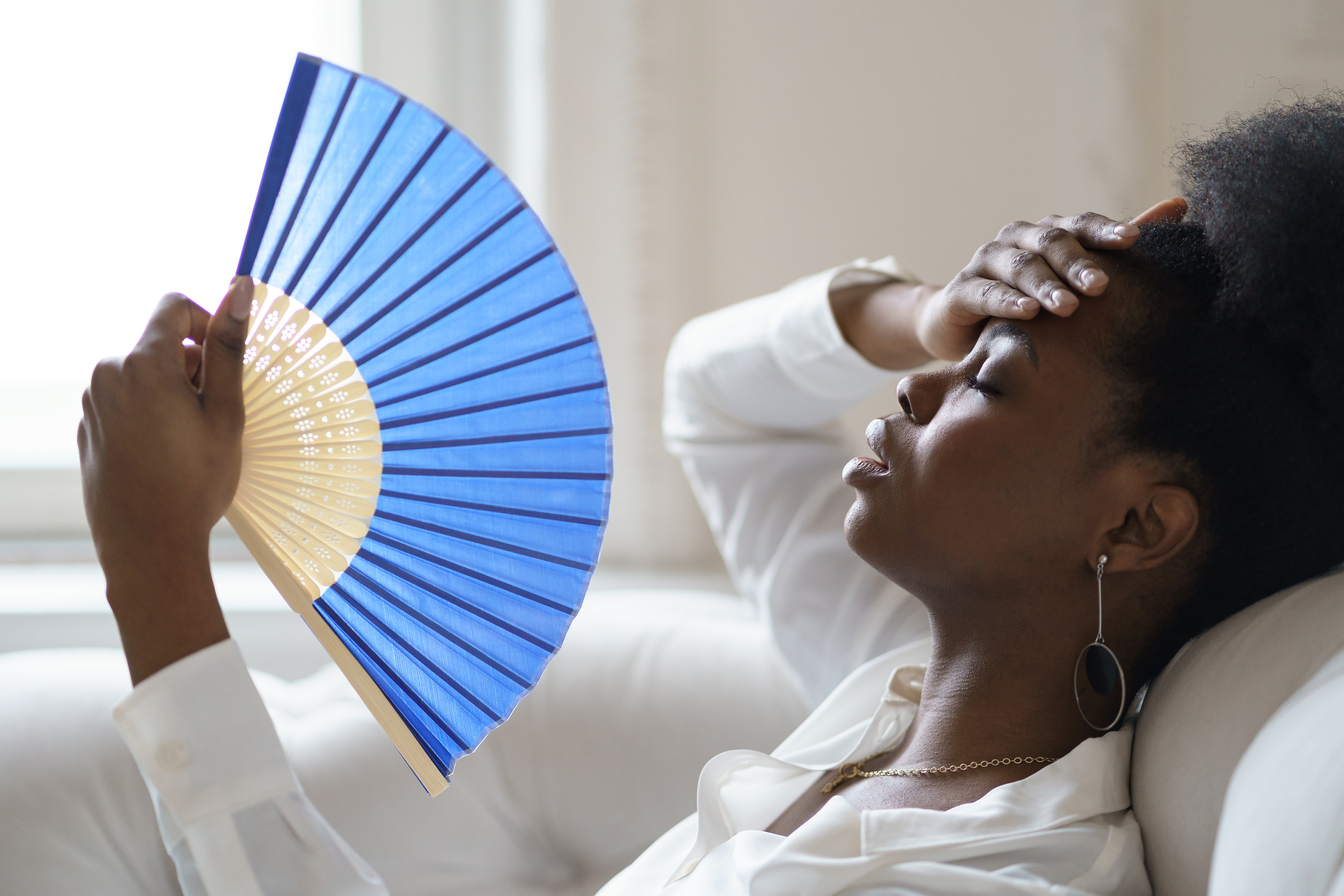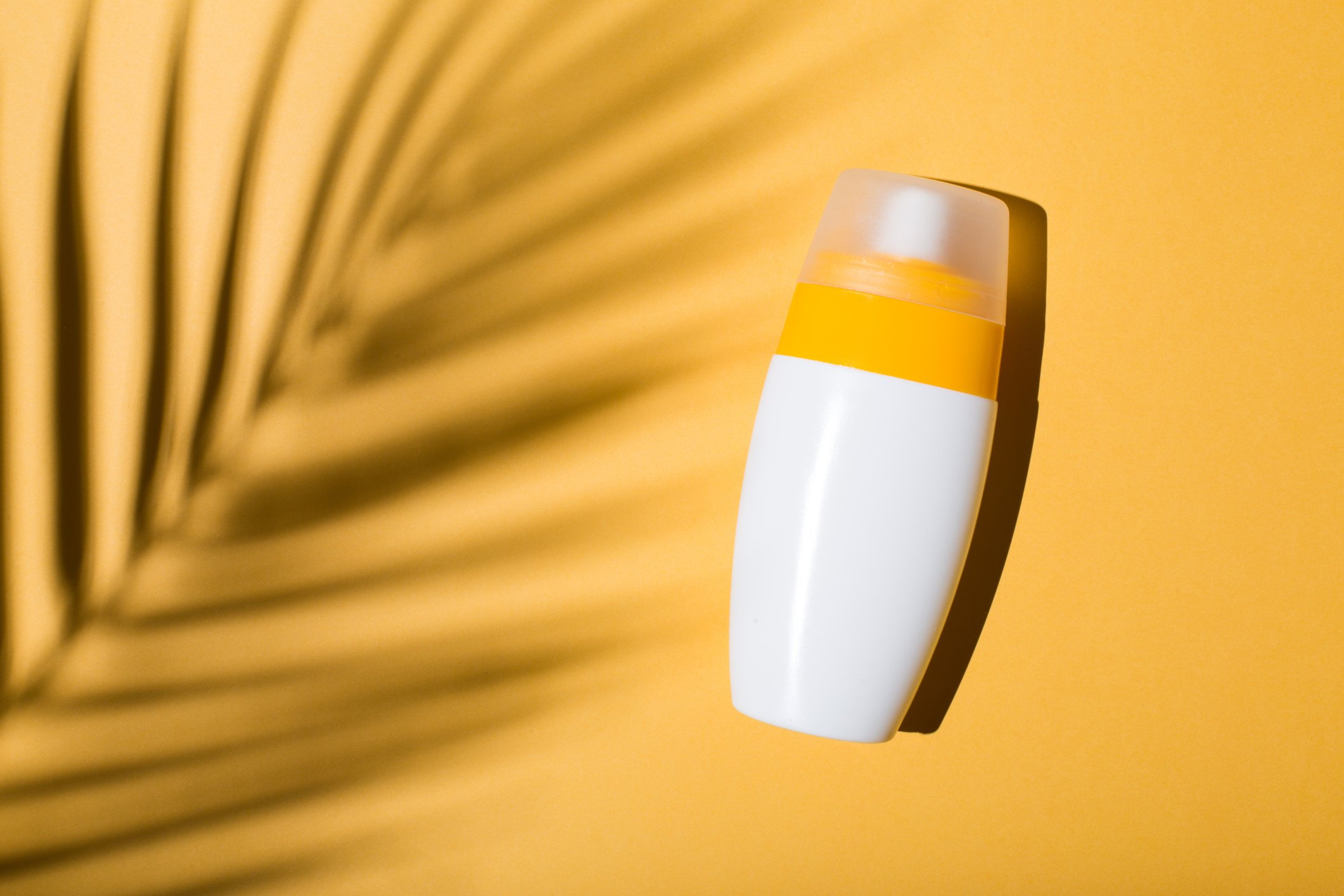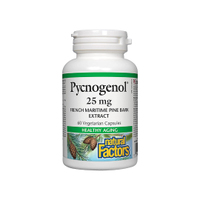What is a level 4 heatwave? Plus how to handle the temperature, if you're struggling
Your need-to-knows.

Your need-to-knows.
By now, you'll likely have noticed the level 4 heatwave scorching parts of the UK and France.
The MET Office extended their Amber Extreme Weather Warning to run from Saturday to today, with temperatures in some places expected to reach as high as 40 degrees celsius - hotter than Jamaica.
Experts have warned that the heatwave may trigger all kinds of problems, including heatstroke, skin problems, hayfever and more.
Wondering what a level 4 heatwave actually means? Good question - as we haven't seen one here in the UK ever before, you likely won't have heard it before. Keep scrolling for your complete guide, plus tips on how to stay cool, and don't miss our guides to suncream expiration and the best SPF moisturisers, while you're here.
What is a level 4 heatwave?
According to the UK Health Security Agency via gov.uk, a level 4 heatwave alert is an alert issued by the government to indicate that "a severe heatwave could have impacts beyond health and social care with potential effects on transport systems, food, water, energy supplies and businesses."
This is the first time such an alert has been issued since the Heatwave Plan for England was introduced in 2004, with many experts directly linking it to climate change and global warming.
Marie Claire Newsletter
Celebrity news, beauty, fashion advice, and fascinating features, delivered straight to your inbox!
Keen to know how to stay safe as temperatures soar? Keep scrolling.
How to stay safe during the level 4 heatwave
1. Look after your skin
First and foremost, make sure you're wearing adequate SPF every day and reapplying when necessary. Why? Because heightened UVA and UVB rays can cause skin damage spanning both burn and premature ageing. As medical and cosmetic doctor Dr Ewoma Ukeleghe explains, it's fundamental to your skincare routine. "As amazing and beneficial as the sun is to our overall health, it's equally very ageing and accounts for the top factor in skin ageing. Be sure to use it consistently, if you want to maintain the health of your skin," she advises. Our beauty editor-approved guides to the best sun cream and best facial sunscreens will help if you're not sure which brand to go for.
Also remember that hot weather can wreak havoc for those suffering from dry skin conditions such as eczema, according to paediatric dermatologist Dr Jess Felton. "As the temperature increases, we sweat more, and the salts found in sweat can aggravate and irritate the skin. We also wash our skin more, which can dry it out."
Try this: Daily treatment of dry skin is essential, shares the expert. "It protects the important barrier function of the skin, locks moisture in, and reduces itch and eczema flares," she shares. "Use an eczema-friendly bath product, such as a gentle bath foam or wash, for a short bath then applying emollient to damp skin also helps lock moisture in."

2. Stay hydrated
Obvious but essential - with the temperature reaching as high as 40 degrees in some places, it's vital to drink more than usual. Think you're already drinking enough? Think again - some research from the Department of Health and Human Services recommends you drink a glass of water every 20 minutes.
Try this: Registered dietician Dora Walsh advises drinking as much water as possible to ensure you maintain your energy levels. "When we’re dehydrated, we feel very low on energy and may feel less alert. Try and get 1.5 – 2 litres of water a day (this includes herbal teas)," she shares.
Also note here - the pro encourages upping your sources of antioxidants such as vitamins A, C and E. Why? Well, to support your hair and skin health (vitamin A), and to counter the skin damage from sun burn, called oxidative stress (vitamin C and E). Sources of vit A include leafy green vegetables, red bell pepper and eggs, vit C oranges, peppers and potatoes, and vit E peanuts, almonds, and sunflower seeds.
3. Manage your hayfever
Did you know? Spiking temperatures usually mean a spike in pollen count, too, meaning that the one in four adults who suffer from hayfever will likely experience heightened symptoms.
Dr Fred Pescatore, a family medicine specialist, shares that the most common complaints he receives from patients when it comes to hay fever are itchy eyes, a runny nose and a scratchy throat. "These often cause bigger issues like sleeplessness, irritability and loss of appetite," he explains. "These symptoms are caused by inflammation, which is why I always recommend my patients take a natural supplement called Pycnogenol, a natural plant extract that helps ease symptoms."
Don't miss our guide to hayfever relief, either.
4. Know the symptoms of heatstroke
Been out in the sun for too long for whatever reason? Knowing the symptoms of heat stroke is key to protecting yourself, should you fall ill. Anshu Kaura, a pharmacist from LloydsPharmacy, shares that millions of people are at risk of sunstroke across the UK this week, making it even more key to remind yourself of the key symptoms to look out for and stay aware.
They share that the main symptoms of heatstroke include:
- Fever
- Shortness of breath
- Confusion or loss of consciousness
- Fainting
- Seizure
- Different types of headache
- Nausea
- Non-responsive.
Experiencing any of these symptoms? Rest in a cool place for thirty minutes, and if your symptoms persist, call 999, shares the doctor.

5. Don't overdo it
And finally, if you're planning on exercising in this heat, take it easy. For many, it may even be advisable to take a break this week. Lucie Cowan, Master Trainer at Third Space, shares that getting up early to avoid peak temperatures is almost certainly a good idea, as is increasing the length of your warm-up.
Why? "While this seems counterintuitive when you’re already pretty darn warm, warming up is actually even more important in warm temperatures as it'll take longer to get your body adjusted to the heat. Plus, it allows time for your heart rate to rise slowly. "
Final note: make sure to cool down as quickly as possible post-session, too. "While stretching is normally super important, cooling your body down quickly is more important in this heat," shares the expert. "Try and have a cold shower to take inflammation away from your joints and muscles and bring your core temperature down as quickly as possible," she recommends.

Ally Head is Marie Claire UK's Senior Health and Sustainability Editor, nine-time marathoner, and Boston Qualifying runner. Day-to-day, she heads up all strategy for her pillars, working across commissioning, features, and e-commerce, reporting on the latest health updates, writing the must-read wellness content, and rounding up the genuinely sustainable and squat-proof gym leggings worth *adding to basket*. She also spearheads the brand's annual Women in Sport covers, interviewing and shooting the likes of Mary Earps, Millie Bright, Daryll Neita, and Lavaia Nielsen. She's won a BSME for her sustainability work, regularly hosts panels and presents for events like the Sustainability Awards, and is a stickler for a strong stat, too, seeing over nine million total impressions on the January 2023 Wellness Issue she oversaw. Follow Ally on Instagram for more or get in touch.
